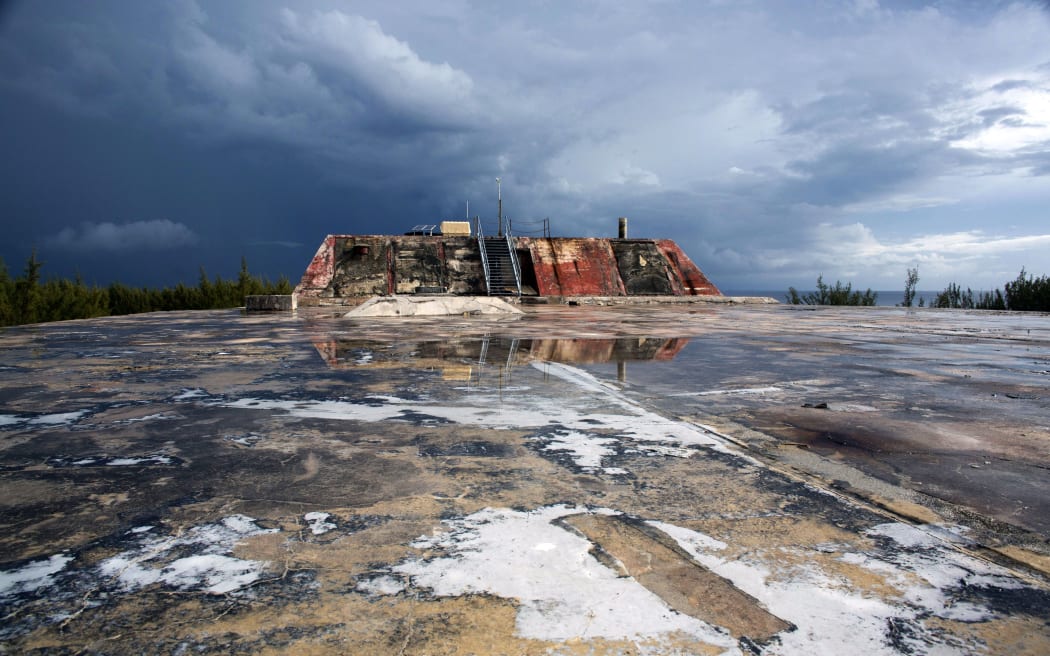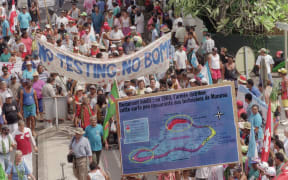A French health specialist says a quarter of children exposed to France's atmospheric nuclear weapons tests near Moruroa developed thyroid cancer.
Christian Sueur, a child psychiatrist, also said many people on Tureia, the closest inhabited atoll to Moruroa, were dying of cancer at a relatively young age.

50 years after the first nuclear test, and 20 years after the last. The French Polynesia atoll of Mururoa is still largely a no-go zone. Photo: AFP
Dr Sueur was alerted to the issue during a decade working in child psychiatry at Tahiti's hospital and visiting patients in the Tuamotus.
He's now shared his findings with the newspaper Le Parisien and accused politicians and the military of downplaying the test legacy in the Tuamotus.
Dr Sueur said 271 children had been treated for pervasive developmental disorders, 69 of them for a morphological disorder and/or an intellectual disability.
He said the genetic conditions were found mainly in children whose parents and grandparents had been exposed to radiation from the atmospheric weapons tests in Moruroa between 1966 and 1974.
He said among the 300 residents on Tureia six years ago there were about 20 conditions believed to be radiation-induced, resulting in one of four who were children at the time of the tests getting thyroid cancer.
Dr Sueur said he raised his concerns about the concentration of cases in the area with successive health ministers but they failed to respond.
He said last year his budding research with Japanese scientists into the genetic aspects of the cases was stopped.
A doctor of the military Patrice Beart said his team had found nothing out of the ordinary.
He told Le Parisien that the behavioural and developmental problems in children were linked to high levels of lead from car batteries used in fishing.
Dr Sueur said the problem of possible genetic links should be researched by independent experts.
The full report can be found here.





